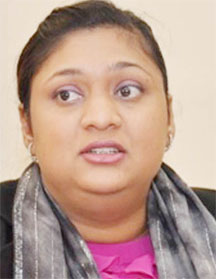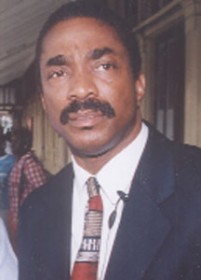-opposition withholds support
A Bill that empowers the Commis-sioner General of the Guyana Revenue Authority (GRA) to assess lawyers based on their tax returns before issuing a certificate for them to practice was passed by the National Assembly on Thursday.
The Legal Practitioner’s Amend-ment Bill was passed with a contentious clause opposed by the opposition PNCR and AFC intact. PNCR parliamentarian Basil Williams said that his party could not support the Bill in its present form. The Bill was brought before the House but sent to a Special Select Committee in December last year. Minister of Human Services, Priya Manickchand was chairperson of the Committee and in presenting the report she urged that it be adopted so that the “very necessary” Bill could be made a reality.

However, Williams expressed concerns about consultations, prompting Manickchand to say later that she had heard members speak “blatant untruths” in the House. “The system of special select committee is broken,” said Williams, adding that it has not achieved what its framers had intended. He said that the lack of the consultative process loomed large in the consideration of the Bill. He said that the PNCR believes that consultations with stakeholders should take place as is done with other committees and they were surprised that this was not done. He said that in the committee he had asked for the memos from earlier consultations to be supplied “but even that was met with resistance.” Williams accused the PPP/C of using its majority to “railroad” the process.
However, in a strong rejoinder, PPP/C MP Anil Nandlall said that the impression given that the Bill was “pulled out of some back door” was wrong. He said that the Bill was not sprung upon lawyers or the Guyana Bar Association (GBA), pointing out that the Justice Modernisation Programme’s Steer-ing Committee has benefitted from the widest possible participation. He noted that the members of the various associations and organisations are members of the Committee. He said that since 2008, the Bill was sent to different stakeholders and responses were received from the GBA as well as other organisations. So when it was first brought before the House, consultations were already done, Nandlall said. He said that they had produced evidence of consultation to Williams but he refused to consider it calling it “hearsay information.” “Mr. Basil Williams was dissembling in this National Assembly as he has done before,” said Manickchand. Citing experiences before, she said that opposition members have oftentimes not shown up for committee meetings and “this is something that is repeated.” She accused the PNCR particularly of wanting to “prolong and delay” work of the committees. Wide consultations were done on the Bill, she said.

AFC MP Khemraj Ramjattan, in his presentation, noted that “the offensive clause” still remains in the Bill and the AFC had not participated in the Select Committee because it knew that it would have been an exercise in futility. “We have indicated that the independence of the legal profession is being eroded by this Bill,” he said, adding that the AFC would not support it.
Despite the objections, the report of the committee was adopted and the Bill was passed by majority.
In the explanatory memorandum of the Legal Amendment Practi-tioner’s Bill it is stated that the legislation is seeking to enhance the regulation of the legal profession and to strengthen the powers of the Legal Practitioners Committee, in relation to the discipline of attorneys-at-law. Rule 15 sub-rule two of the Bill is the prickly section and it says that an attorney-at-law shall not practice as an attorney-at-law unless he has been issued a practice certificate by the Commissioner General in accordance with the provisions of Section 39, Cap: 80:01 of the Tax Act.
(Gaulbert Sutherland)





